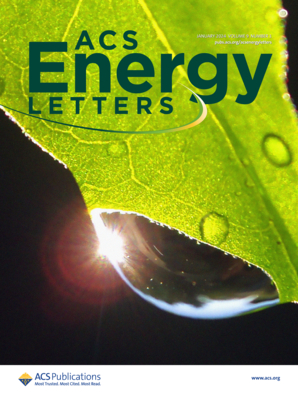将元学习模型与认知过程模型相结合。
IF 19.3
1区 材料科学
Q1 CHEMISTRY, PHYSICAL
引用次数: 0
摘要
元学习的认知模型能对呈现给参与者的实际刺激做出最佳预测,但通过约束神经网络来研究判断偏差将非常臃肿。我们建议将它们与认知过程模型结合起来,后者更直观,更能解释偏差。理性过程模型可以从元学习模型产生的后验分布中依次采样,这似乎是一个天然的契合点。本文章由计算机程序翻译,如有差异,请以英文原文为准。
Combining meta-learned models with process models of cognition.
Meta-learned models of cognition make optimal predictions for the actual stimuli presented to participants, but investigating judgment biases by constraining neural networks will be unwieldy. We suggest combining them with cognitive process models, which are more intuitive and explain biases. Rational process models, those that can sequentially sample from the posterior distributions produced by meta-learned models, seem a natural fit.
求助全文
通过发布文献求助,成功后即可免费获取论文全文。
去求助
来源期刊

ACS Energy Letters
Energy-Renewable Energy, Sustainability and the Environment
CiteScore
31.20
自引率
5.00%
发文量
469
审稿时长
1 months
期刊介绍:
ACS Energy Letters is a monthly journal that publishes papers reporting new scientific advances in energy research. The journal focuses on topics that are of interest to scientists working in the fundamental and applied sciences. Rapid publication is a central criterion for acceptance, and the journal is known for its quick publication times, with an average of 4-6 weeks from submission to web publication in As Soon As Publishable format.
ACS Energy Letters is ranked as the number one journal in the Web of Science Electrochemistry category. It also ranks within the top 10 journals for Physical Chemistry, Energy & Fuels, and Nanoscience & Nanotechnology.
The journal offers several types of articles, including Letters, Energy Express, Perspectives, Reviews, Editorials, Viewpoints and Energy Focus. Additionally, authors have the option to submit videos that summarize or support the information presented in a Perspective or Review article, which can be highlighted on the journal's website. ACS Energy Letters is abstracted and indexed in Chemical Abstracts Service/SciFinder, EBSCO-summon, PubMed, Web of Science, Scopus and Portico.
 求助内容:
求助内容: 应助结果提醒方式:
应助结果提醒方式:


